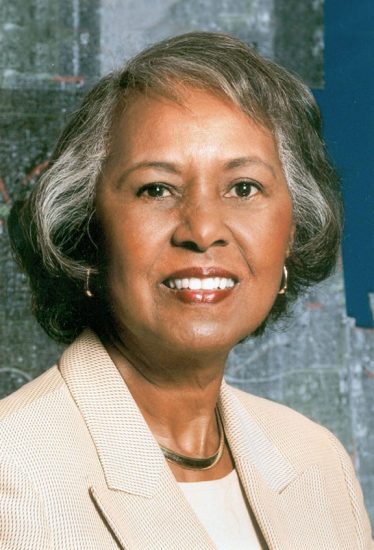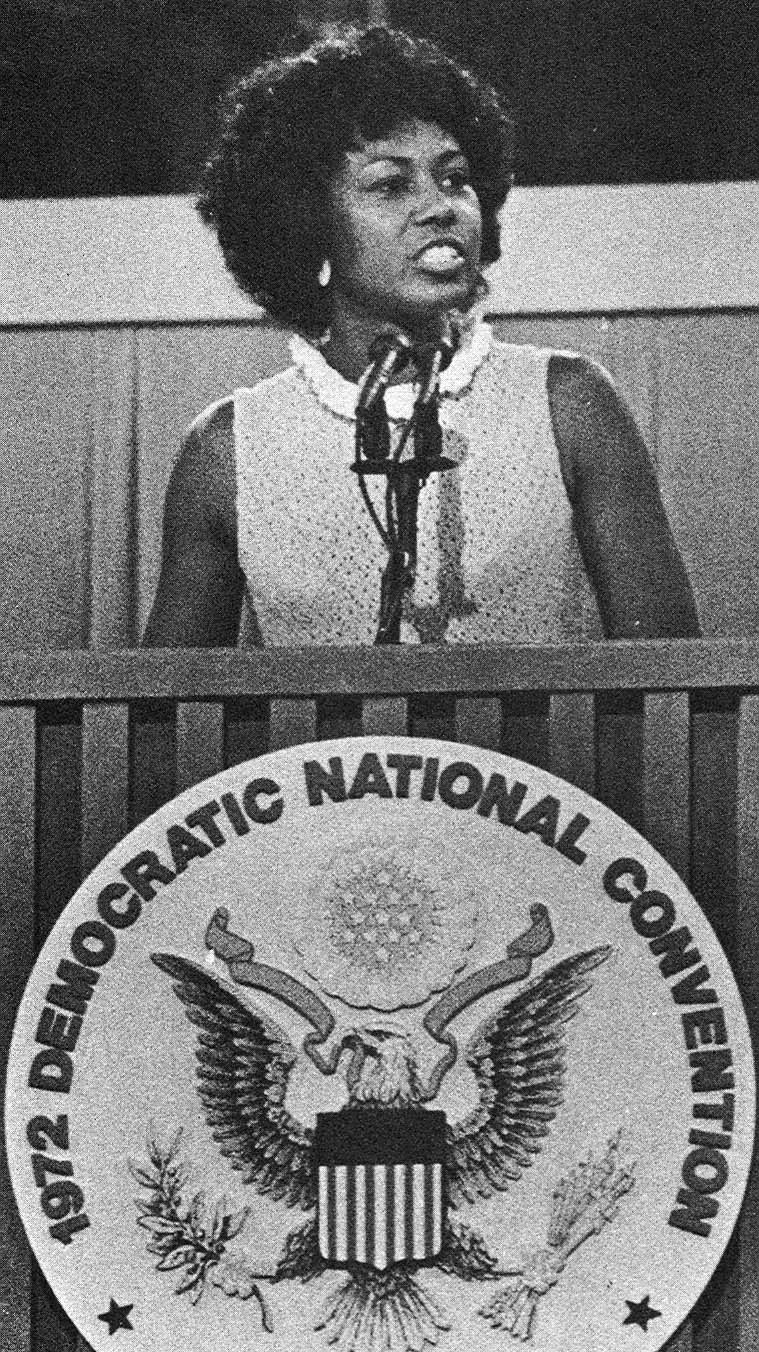

Yvonne Brathwaite Burke (b. 1932) broke barriers as the first Black woman to represent the West Coast in Congress and the first African American and woman of color to serve as Vice-Chairperson at the 1972 Democratic National Convention.¹ Throughout her life, Burke has served as a trailblazer in public service, law, and the active promotion of rights for women and minorities.
A native of Los Angeles, Burke was the second Black woman to be admitted to USC Law School in 1953.² After graduating in 1956, Burke established a private practice, where she waged a tireless battle against real estate and probate inequalities, including successfully advocating for the desegregation of local real estate boards that discriminated against Black homebuyers.³ Burke went on to make a significant impact in various roles, and in 1966 she became the first Black woman elected to the California State Assembly.²
In 1972, Burke reached another landmark achievement as the first Black woman and first woman of color to serve as Vice-Chairperson at the Democratic National Convention. She was also elected to the U.S. House of Representatives in 1973. In November of 1973, Burke became first member of Congress to give birth while in office.¹ During her time in Congress, Burke was a member of the Appropriations Committee and played a critical role in passing a law that ensured non-discrimination and equal job opportunities for workers constructing the Trans-Alaska Pipeline under federally-funded contracts.¹
In 1979, Burke was appointed to the Los Angeles County Board of Supervisors by Governor Jerry Brown.³ Although she lost her re-election bid the following year, Burke ran again in 1992 and was successfully elected. She went on to win re-election three times before retiring in 2008.³
Burke was a trailblazer for Black women in politics. She was later nominated by President Barack Obama and appointed to the Amtrak Board of Directors in 2013. Throughout her career, Burke left a lasting legacy as a dedicated public servant and champion of justice.¹
Sources: ¹US House of Representatives: History, Art & Archives, ²Online Archive of California, ³USC News
Profile Photo: Amtrak

Photo Credit: BlackPast.Org

Photo Credit: US House of Representatives: History, Art & Archives

Photo Credit: Wikipedia

Photo Credit: USC News

Photo Credit: UCLA Digital Library